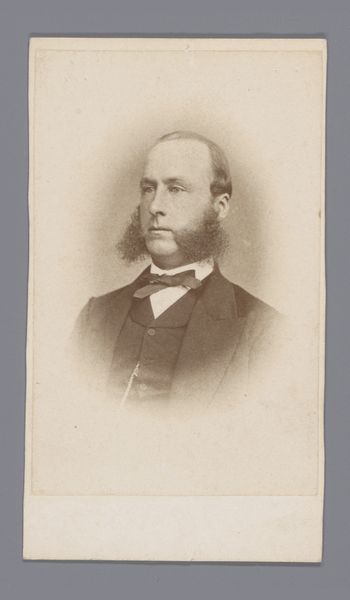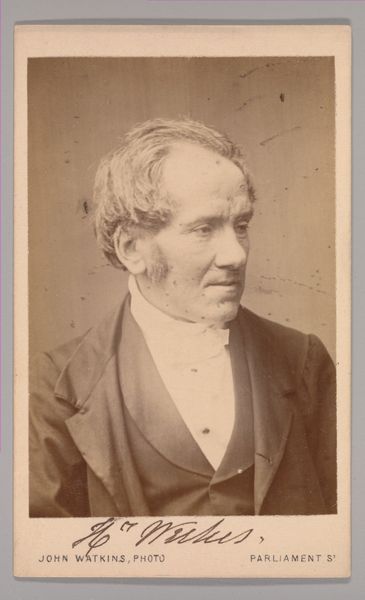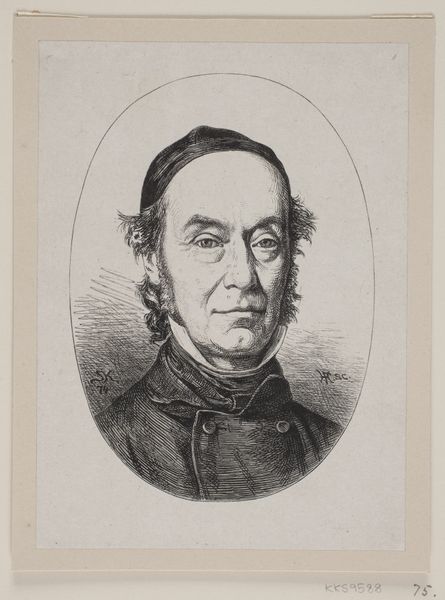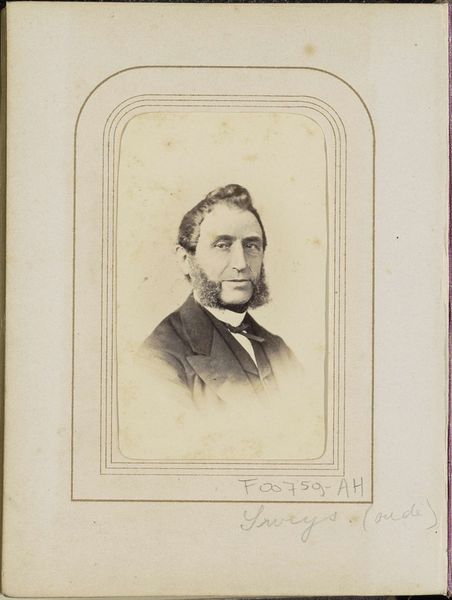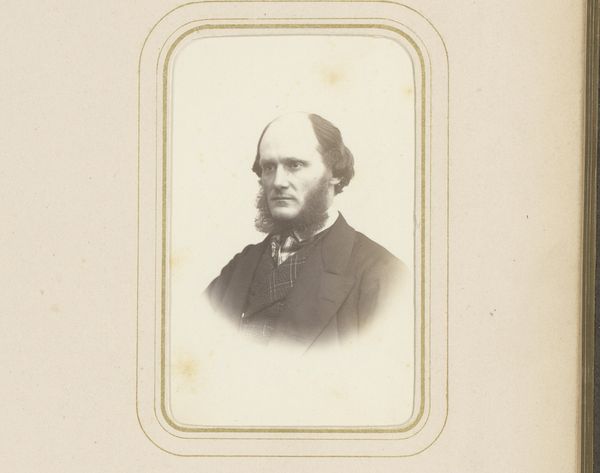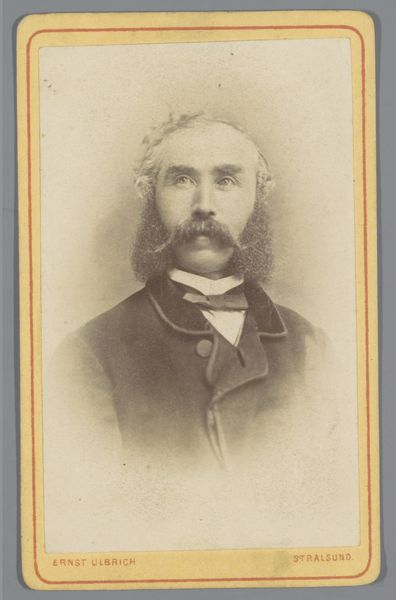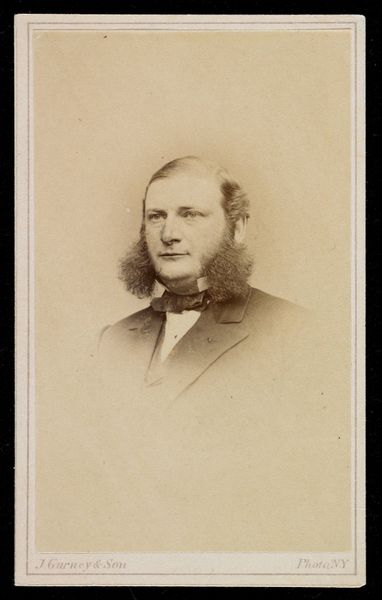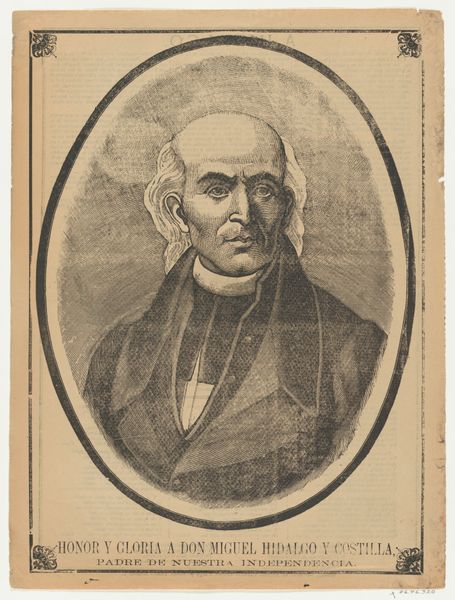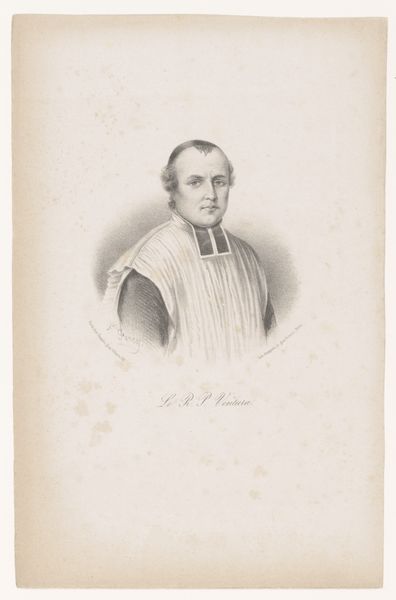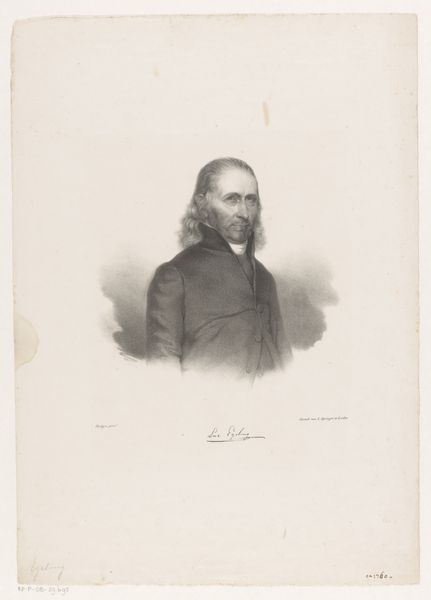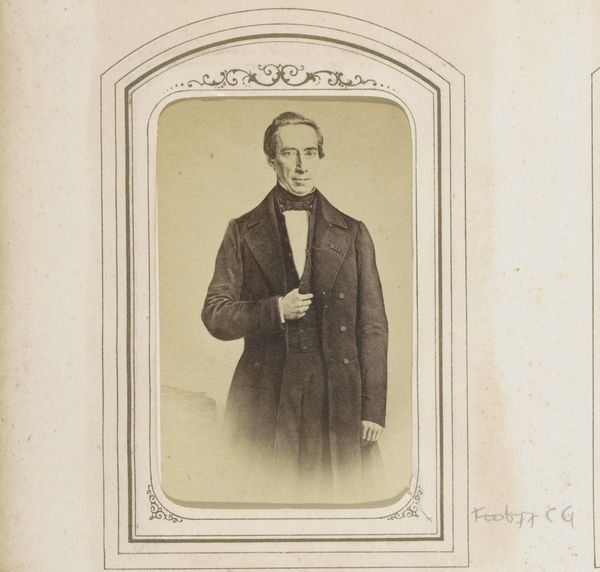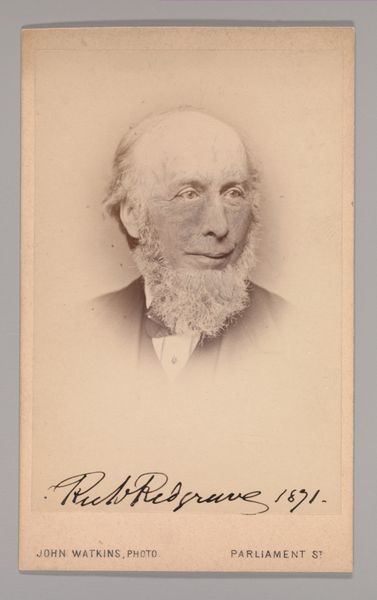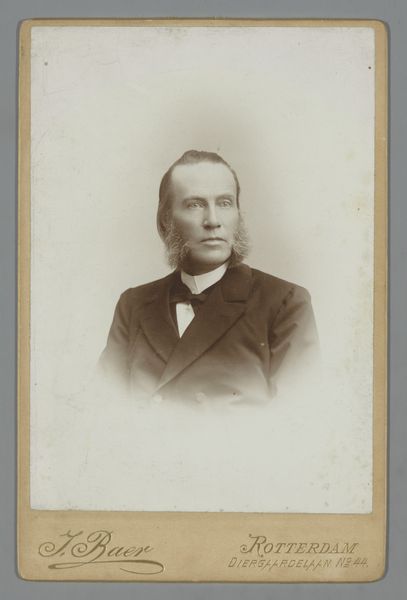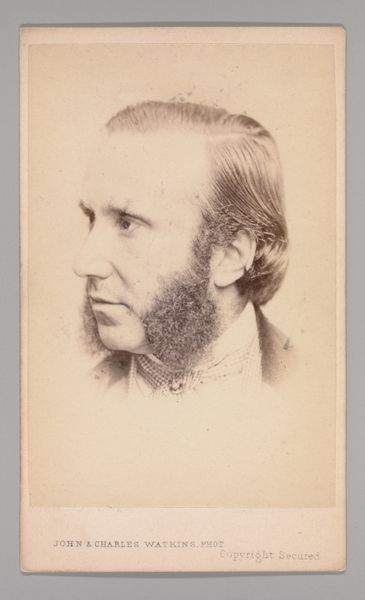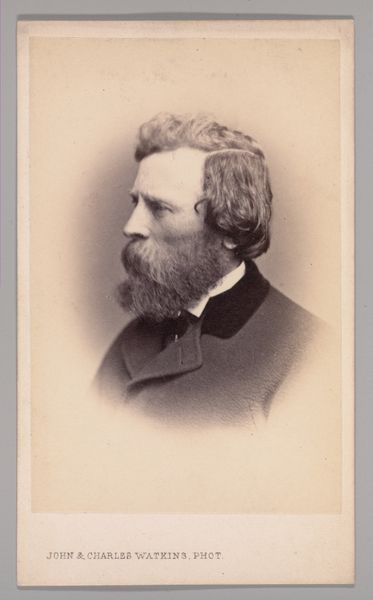
E. Frangeul, from the Sea Captains series (N127) issued by Duke Sons & Co. to promote Honest Long Cut Tobacco 1887
0:00
0:00
drawing, lithograph, print
#
portrait
#
drawing
#
lithograph
# print
Dimensions: Sheet: 4 3/16 × 2 7/16 in. (10.7 × 6.2 cm)
Copyright: Public Domain
Curator: This is an interesting piece. What captures your attention about this print? Editor: The rosy cheeks against that sea-green backdrop! He seems like he’s seen a storm or two. The artist clearly had a sense of humor about those sideburns. A true sea dog! Curator: This portrait of E. Frangeul comes from an 1887 lithograph series, titled "Sea Captains." It was commissioned by W. Duke, Sons & Co. as promotional material for their 'Honest Long Cut' tobacco. Its current home is here at the Metropolitan Museum of Art. The composition places Frangeul against the Transatlantic Company flag. Editor: Interesting. I assumed he’d just stepped off his ship. I like the visual storytelling here—it isn’t just about selling tobacco; it evokes this whole romantic image of the open seas. It looks more complex, though, for just a bit of commercial ephemera. There's a real attention to detail in those lines. Curator: Notice the interplay of primary colors. The red of the emblem provides a focal point, cleverly echoed in Frangeul's face and the textual elements at the base. There's a striking flatness of the print medium countered by delicate shading and the rendering of textures. It’s not merely representational but operates with a level of formal consideration. Editor: So it’s playing both games—a direct advert and art too. Did this ‘Sea Captain’ brand make a splash? Does it symbolize America trying to define its culture, to have its own seafaring heroes separate from the old world? Curator: Contextually, these were produced during a period of intense competition in the tobacco industry, where advertising cards were extremely popular. Semiotically, we can examine the image as a signifier—the captain as an emblem of reliability and the allure of transatlantic travel, carefully constructed by the Duke company. Editor: And all that for a bit of tobacco! It speaks to the powerful image making, of connecting an ordinary thing, smoking, to grand ambition. Makes you think differently about every pack you pass. A fascinating peek into another time. Curator: Precisely. Analyzing it has refined my understanding, too. Thank you!
Comments
No comments
Be the first to comment and join the conversation on the ultimate creative platform.
